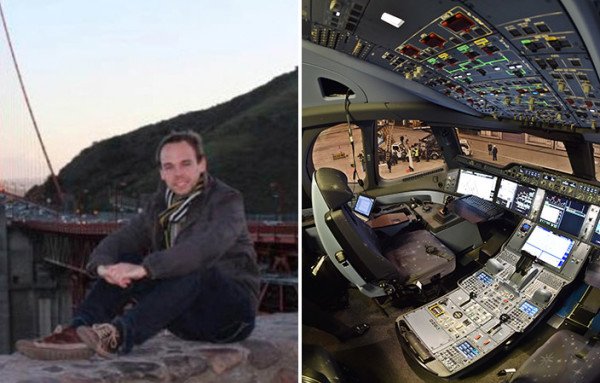According to a report by French investigators, Andreas Lubitz, the co-pilot of the Germanwings plane that crashed in the French Alps in March, may have practiced a rapid descent on a previous flight.
The French investigators’ report said Andreas Lubitz repeatedly set the plane for an unauthorized descent earlier that day.
Andreas Lubitz is suspected of deliberately crashing the Airbus 320, killing all 150 people on board.
The co-pilot had locked the flight captain out of the cockpit.
The plane had been flying from Barcelona to Dusseldorf on March 24.
The alteration of the flight settings occurred on the plane’s outbound flight from Dusseldorf to Barcelona on the same day, the preliminary report by accident investigation agency BEA said.
It added that on several occasions – again with the captain out of the cockpit – the altitude dial was set to 100ft, the lowest possible reading, despite instructions by air traffic control in Bordeaux to set it to 35,000ft and then 21,000ft.
It was also reset on one occasion to 49,000ft, the maximum altitude.
The changes apparently happened over a 5-minute period at about 07:30 on the day of the crash, starting 30 seconds after the captain left the cockpit.
“I can’t speculate on what was happening inside his head – all I can say is that he changed this button to the minimum setting of 100ft and he did it several times,” BEA director Remy Jouty told Reuters news agency.
The outward flight left Dusseldorf at 06:01, arriving in Barcelona at 07:57.
Andreas Lubitz is known to have suffered depression in the past and last month German prosecutors revealed that he had researched suicide methods and the security of cockpit doors.
Voice recorder findings suggest Andreas Lubitz locked the pilot out of the cockpit on the doomed flight.
The BEA’s preliminary report also discloses more detail of what happened on board the flight that crashed.
The flight data recorder appears to show Andreas Lubitz repeatedly increasing the aircraft’s speed once he had programmed its descent.
On several occasions, both air traffic control and France’s air defense system tried to contact the plane.
Signals from the cabin intercom, followed by knocking on the cockpit door and then “noises similar to violent blows” are heard on the voice recorder as the captain tries to re-enter the cockpit, according to the report.
BEA is expected to release its final report in a year, which the focus on “systemic failings” and cockpit security.
https://www.youtube.com/watch?v=–DScg0_JMg
